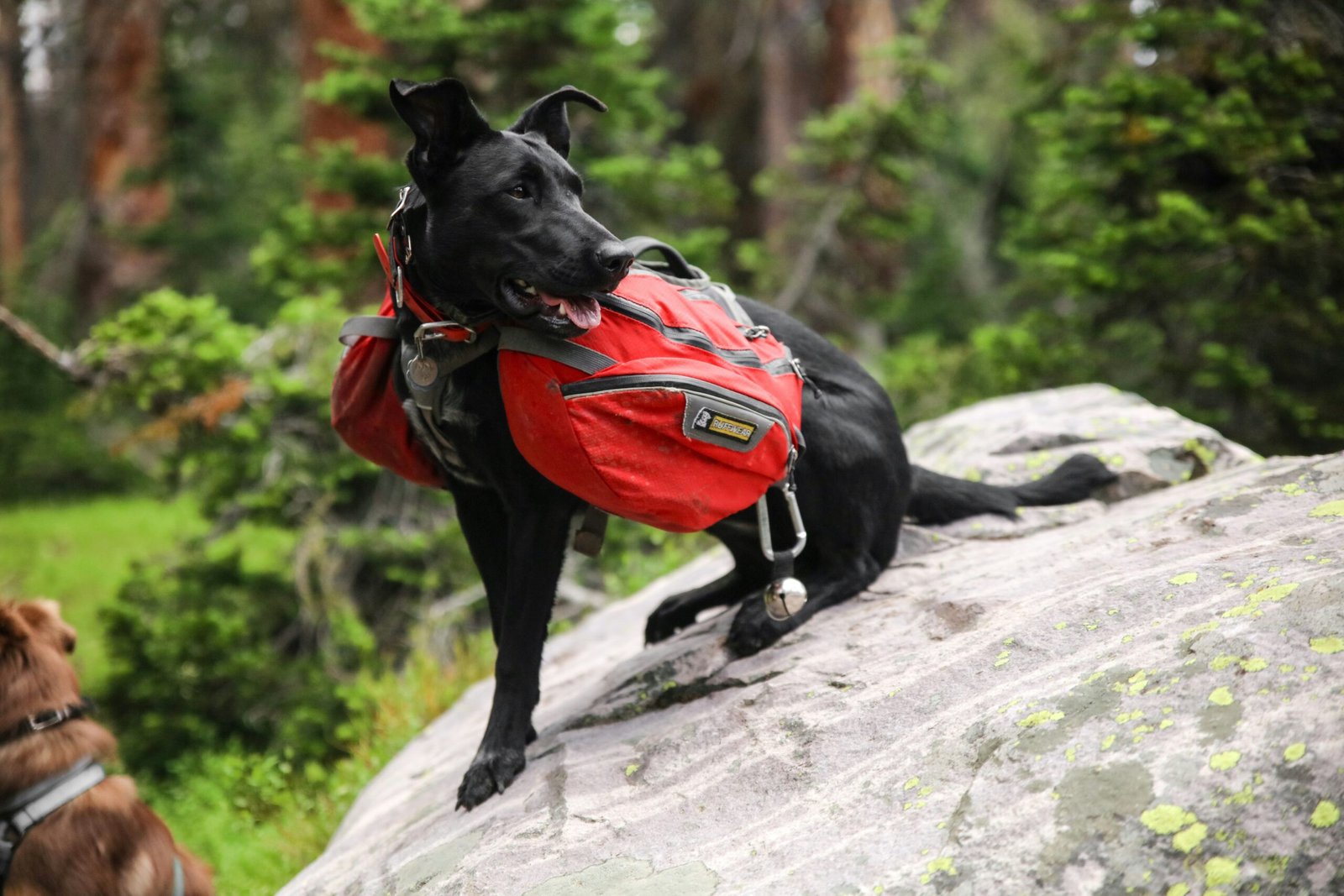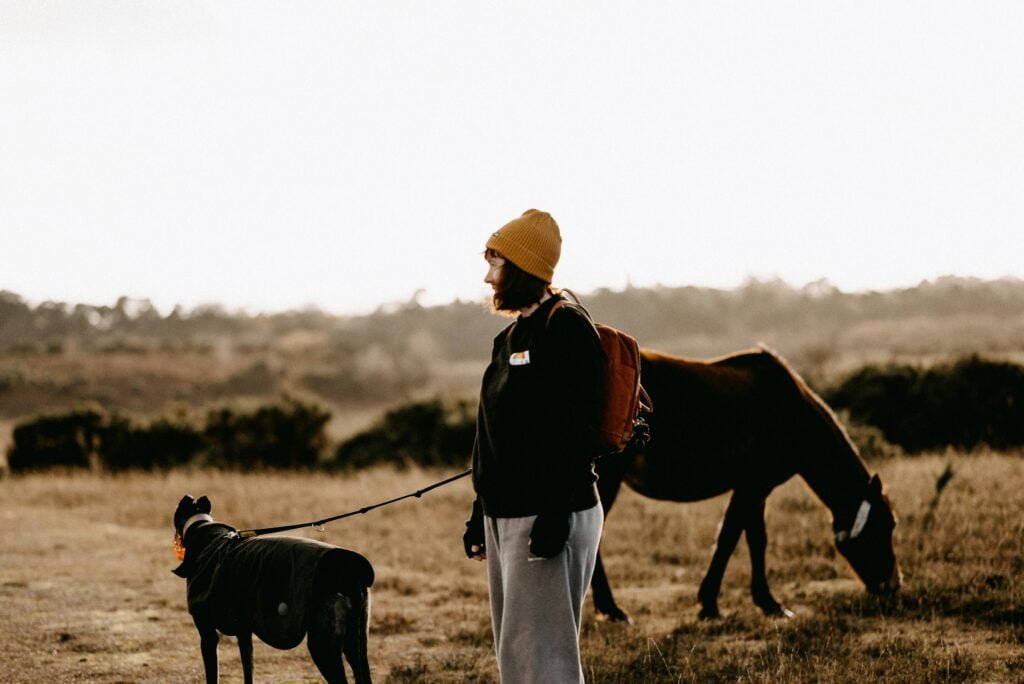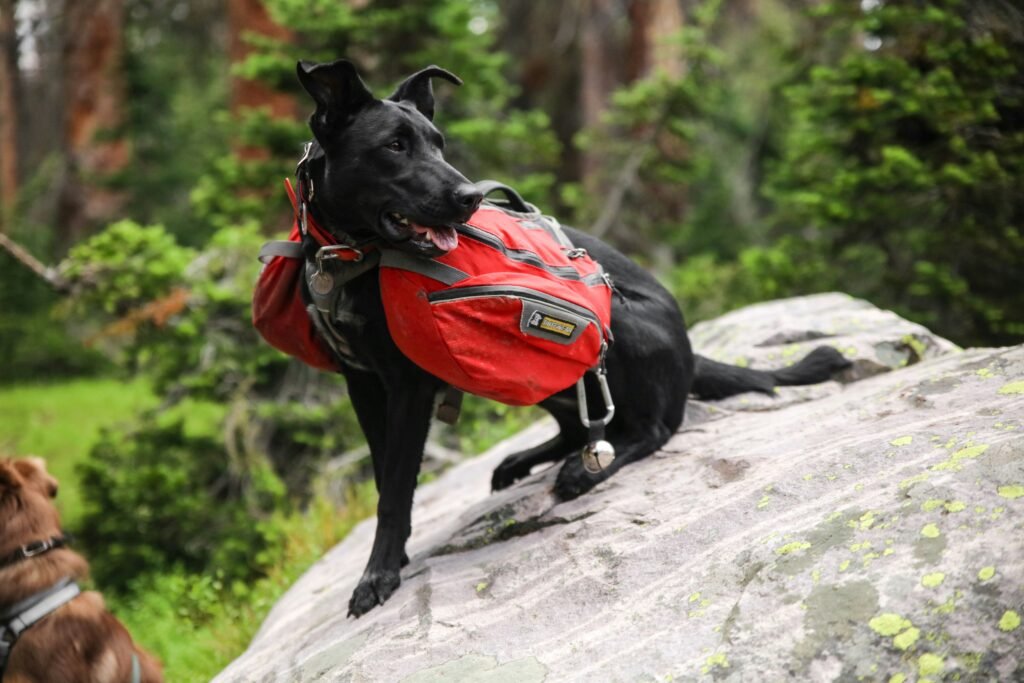
In “Best Dog Collars and Leashes for Large Breeds,” you’ll discover expert recommendations on the most effective gear to keep your big pup safe and stylish. Considering the unique needs of large breeds, from their robust strength to their specific health requirements, this article covers top-rated collars and leashes tested for durability and comfort. You’ll learn how the right accessories can support your furry friend’s overall well-being, ensuring every walk or adventure is enjoyable for both of you. Featuring insights from veterinarians and canine health experts, this guide emphasizes the importance of choosing high-quality products that cater to the specific health and wellness of larger dogs. Have you ever wondered how to pick the best collar and leash for your large dog breed? If you’re a proud dog owner, you’re probably familiar with the struggle of finding the perfect accessories that are both durable and comfortable for your big canine friend. Selecting the right collar and leash isn’t just about style; it directly impacts your dog’s health and overall well-being. In this guide, we’ll walk you through the best options available for large breeds and provide tips on how to choose the perfect fit for your furry companion.

Understanding Your Large Breed’s Needs
Before diving into specific products, let’s take a moment to understand why your large breed might need a few special considerations when it comes to collars and leashes.
Why Size Matters
Large dogs usually have more strength, which means you’ll need a collar and leash that can handle their power without causing them discomfort. Unlike smaller dogs, large breeds can put a lot more strain on their accessories, making durability a key factor.
Health and Safety First
Dogs of all ages need support for their overall health and well-being. For large breeds, the wrong collar or leash can exacerbate health concerns, such as joint issues or skin irritation. It’s essential to choose products designed with your dog’s health in mind.
Types of Dog Collars
There’s a wide variety of collars on the market, each with its own set of advantages. Here’s a breakdown of the most popular types and their suitability for large breeds.
Flat Collars
Flat collars are the most common and basic type of collar. They are easy to use and manage. However, for large breeds, you should look for wide and sturdy versions.
Pros:
- Simple to use
- Generally less expensive
- Suitable for everyday use
Cons:
- May not provide enough control for very strong dogs
- Can cause neck strain
Martingale Collars
Martingale collars are a popular choice for large breeds because they provide more control without choking the dog.
Pros:
- Provides better control
- Prevents the dog from slipping out of the collar
- Distributes pressure evenly
Cons:
- Needs to be fitted correctly
- Not suitable for unattended use
Harnesses
While not technically a collar, harnesses are worth mentioning. They distribute pressure across the body and are excellent for dogs with neck or throat issues.
Pros:
- Reduces strain on the neck
- Provides more control
- Ideal for dogs with throat issues
Cons:
- Can be cumbersome to put on
- Some dogs may not like the feeling
Prong and Choke Collars
These collars should generally be avoided unless recommended by a veterinarian for specific training needs.
Pros:
- Provides high control
Cons:
- Risk of causing physical injury
- May increase anxiety or aggression
Choosing the Right Leash
Just like collars, choosing the right leash for your large breed is crucial. Here are the most common types you’ll encounter.
Standard Leashes
These are the go-to leashes for many dog owners. They offer good control and come in various materials.
Pros:
- Provides good control
- Durable
- Various lengths and materials
Cons:
- Can be less flexible
Retractable Leashes
These leashes offer more freedom for your dog but are generally not recommended for large breeds due to control issues.
Pros:
- Offers freedom of movement
- Great for well-trained dogs
Cons:
- Limited control
- Not suitable for strong dogs
Chain Leashes
Chain leashes are incredibly durable and are suitable for dogs that chew their leashes.
Pros:
- Chew-proof
- Durable
Cons:
- Heavy
- Can cause hand injuries
Bungee Leashes
These leashes absorb shocks and are great for active dogs that tend to pull.
Pros:
- Reduces strain
- Provides shock absorption
Cons:
- May provide less control
- Can be more expensive
Recommended Products
Here’s a table summarizing some of the best collars and leashes currently available for large breeds based on durability, user reviews, and veterinarian recommendations.
| Product | Type | Key Feature | Price Range |
|---|---|---|---|
| EcoBark Max Comfort | Harness | Eco-friendly, padded for comfort | $18 – $25 |
| PetSafe Martingale | Collar | Provides better control | $7 – $15 |
| BAAPET 5 FT Strong Leash | Standard Leash | Heavy-duty, reflective threads | $11 – $16 |
| Primal Pet Gear Dual-Handle | Bungee Leash | Shock-absorbing, extra handle | $17 – $22 |

Tips for Proper Use
Correct Fitting
A well-fitted collar or harness is crucial. Too tight, and it will cause discomfort and potential health problems. Too loose, and your dog might slip out.
Steps to a Perfect Fit:
- Measure the circumference of your dog’s neck and chest.
- Leave enough room to slide two fingers between the collar and the dog’s neck.
- Adjust the harness to distribute pressure evenly.
Regular Maintenance
Inspect the collar and leash regularly for signs of wear and tear. Replace them if any damage is detected to avoid any risk of breakage.
Combining with Health Products
Considering adding some canine wellness supplements or natural dog remedies can complement the use of collars and leashes. For example, joint supplements can support hip and joint health, which is beneficial for large breeds prone to arthritis.
Popular Supplements:
- Glucosamine and Chondroitin: Supports joint health
- Omega-3 Fatty Acids: Promotes healthy skin and coat
- Probiotics: Aids digestion and overall health
Consult Your Veterinarian
Before making any final decisions, always consult your veterinarian. They can provide specific recommendations based on your dog’s breed, age, and health condition.
Why It’s Important
Veterinarians can offer insights into the best diet, necessary vaccinations, and any health concerns that may affect your choice of collar and leash. Consulting an expert ensures you’re making the most informed decision for your pet’s optimal health and well-being.

Conclusion
Choosing the best collars and leashes for large breeds isn’t a one-size-fits-all situation. It’s essential to consider various factors, such as durability, control, and your dog’s specific health needs. Equip your furry friend with the right tools, and you’ll both enjoy many happy, healthy walks together. Don’t forget to pair these accessories with regular vet visits and a balanced diet, potentially including supplements if recommended.
So, next time you gear up for a walk, you’ll know that you’ve made the best choices to support your dog’s health and happiness.







